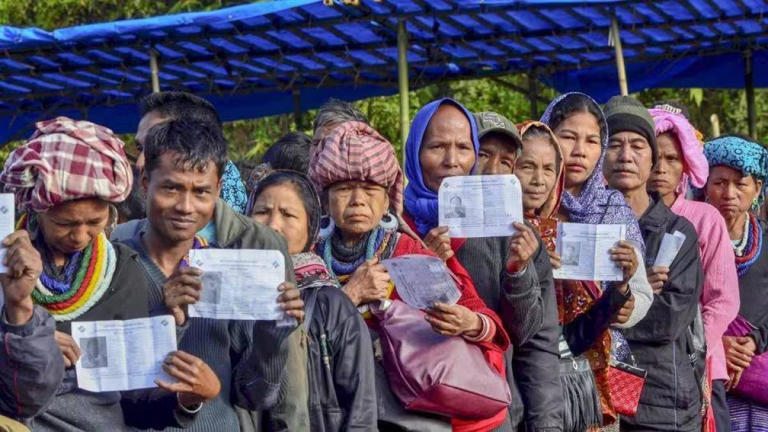Polling begins in Mizoram, 20 seats in Chhattisgarh; litmus test for 2024

Polling begins in Mizoram, 20 seats in Chhattisgarh; litmus test for 2024
The commencement of the month-long assembly elections in Chhattisgarh and Mizoram marks a significant milestone in the democratic process, reflecting the active participation and engagement of the electorate in shaping the future governance and leadership of these states.
The initiation of the first phase of polling in Chhattisgarh, involving 20 seats and 223 candidates, including 25 women, underscores the robust democratic culture and the diverse representation within the electoral landscape. This phase serves as a crucial determinant in setting the trajectory for the state’s legislative assembly, emphasizing the importance of active participation and collective decision-making in shaping the political dynamics and governance of Chhattisgarh.
Simultaneously, Mizoram’s single-phase polling for its 40-member assembly represents a pivotal moment for the residents of the state to exercise their democratic rights and contribute to the electoral process, thereby influencing the formation of the state government and the subsequent policy decisions that will impact the future trajectory of Mizoram.
The conduct of these elections underscores the fundamental principles of inclusivity, representation, and public participation in the democratic process, serving as a platform for citizens to express their preferences and contribute to the overall development and governance of their respective states.
The upcoming phases of polling in Chhattisgarh, Rajasthan, and Telangana, scheduled for November 17, November 25, and November 30, respectively, signify the continuation of the democratic process and the active engagement of the electorate in shaping the political landscape of these states. The significance of these phases lies in their pivotal role in determining the composition of the legislative assemblies and, subsequently, in shaping the course of governance and policy-making in Chhattisgarh, Rajasthan, and Telangana.
The single-phase voting in Rajasthan and Telangana highlights the critical opportunity for citizens to exercise their democratic rights and participate in the electoral process, thereby contributing to the collective decision-making and governance of these states. These elections serve as a platform for the expression of the collective aspirations and concerns of the electorate, emphasizing the fundamental principles of inclusivity, representation, and civic engagement in the democratic framework.
The scheduled date for the counting of votes on December 3 represents a significant milestone, marking the culmination of the electoral process and the subsequent determination of the election results. The counting process will play a pivotal role in determining the political composition and the subsequent formation of the government in these states, thus shaping the future trajectory of governance and policy implementation.
The upcoming phases of polling and the subsequent counting of votes signify the importance of upholding the values of transparency, fairness, and inclusivity in the electoral process, ensuring that the voices and choices of the electorate are accurately reflected in the democratic governance of these states.
Indeed, the upcoming assembly elections in Chhattisgarh, Mizoram, Rajasthan, and Telangana hold significant implications for the various political parties and alliances involved. These elections are widely perceived as a litmus test for the ruling Bharatiya Janata Party (BJP) at the Centre, as well as for the newly formed opposition INDIA bloc and various regional parties contesting in these states.
The outcomes of these assembly elections are expected to influence the strategies and agendas of the respective political parties and alliances, particularly as they gear up for the upcoming 2024 Lok Sabha elections. The results will provide critical insights into the current political mood and public sentiment, thereby shaping the future direction of political discourse, policy priorities, and electoral strategies at both the regional and national levels.
For the BJP, the elections serve as an opportunity to assess its performance and popularity, enabling the party to gauge its strengths and weaknesses, while also providing valuable feedback on its governance and policy initiatives. Similarly, for the newly formed opposition INDIA bloc and other regional parties, the elections represent a crucial platform to demonstrate their electoral influence and showcase their political viability as viable alternatives to the ruling party.
The electoral outcomes will not only determine the composition of the state assemblies but will also play a pivotal role in shaping the political narrative and dynamics leading up to the 2024 Lok Sabha elections. They will serve as an essential barometer for assessing the evolving political landscape and the changing preferences of the electorate, thus guiding the strategic planning and campaign tactics of the various political parties and alliances in the run-up to the national elections.





